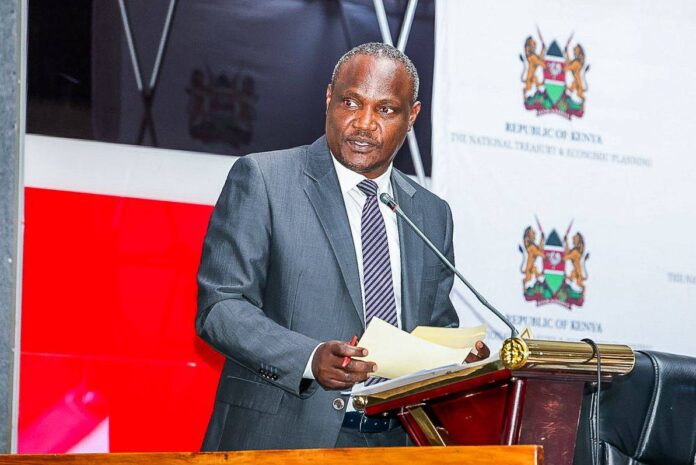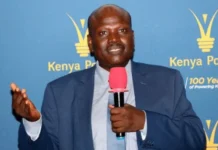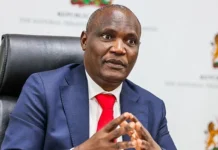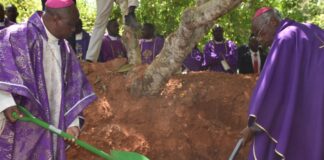The National Treasury has moved to dismiss reports suggesting that taxpayers could lose hundreds of billions following the cancellation of the High Grand Falls Dam Project.
In a statement on Wednesday, September 24, Treasury Cabinet Secretary John Mbadi clarified that the claims were unfounded and sought to reassure the public that the government faced no such exposure.
“The claim that taxpayers could lose up to Ksh317 billion from the cancellation of the High Grand Falls Dam Project is inaccurate. Under the Public Private Partnerships (PPP) framework, no obligation arises until a binding PPP Project Agreement approved by the PPP Committee is signed by project parties. We wish to confirm that no project agreement was signed for this project, and therefore no such liability exists for the government,” he said.
Mbadi also addressed claims that the PPP Committee handling the project acted under influence of foreign interests.
“Allegations that the PPP Committee acted under the influence of foreign interests are not grounded in fact. The Committee is an independent statutory body that has a fiduciary responsibility in the conduct of its business. The proposal by the GBM consortium underwent evaluation and the proponent was accorded a number of opportunities to provide clarifications,” he added.
Mbadi further pushed back against suggestions that the bidding process had already been concluded in favor of a particular consortium.
“The claim that GBM had already “won the tender” or that promises were made to foreign leaders are misleading. In 2017, the National Irrigation Board (NIB) invited bids for the High Grand Falls Dam Project under the Public Procurement and Asset Disposal (PPAD) Act, and not under the PPP framework,” he further said.
Mbadi insisted that the decision to discontinue the project was made in accordance with the law, further emphasizing the government’s commitment to accountability.
“The National Treasury affirms that the decision to terminate the High Grand Falls Dam Project under the PPP framework was lawful, transparent, and fully in line with the PPP Act.
“We assure the public that the Treasury remains committed to delivering infrastructure projects that are viable, sustainable, and beneficial to Kenyans, while upholding the highest standards of transparency and accountability in all procurement processes,” he stated.
On how the decision to cancel the project was arrived at, Mbadi explained that the National Irrigation Authority, acting as the Contracting Authority, on January 30, 2023, submitted a proposal for the dam project to the National Treasury.
The submission was a Privately Initiated Proposal from the GBM consortium, which included ERG International.
The project was subsequently given preliminary approval on May 8, 2023, allowing it to progress to the development stage.
“This phase allowed GBM consortium to carry out detailed studies to test whether the project was practical, sustainable, and beneficial before any construction could begin,” he said.
To guide this process, the National Irrigation Authority and the GBM consortium entered into a Project Development Agreement (PDA) in accordance with the PPP Act.
The agreement outlined how the consortium would conduct the studies, the rules they were required to follow, and the legal requirements governing the project.
On March 14, 2024, the Contracting Authority submitted the Project Development Report (PDR) to the PPP Directorate, along with a request for a joint evaluation of the findings.
After the evaluation was completed, the Contracting Authority forwarded the finalized report to the PPP Directorate on July 31, 2024.
The report was later presented before the PPP Committee during a meeting held on July 2, 2025; the Committee deliberated on the findings and concluded that the project did not meet several statutory requirements.
“Accordingly, the Committee approved the termination of the project in accordance with Section 43(11)(c) of the PPP Act. Further, the Committee recommended that the Contracting Authority could re-submit the project afresh for competitive procurement,” he explained.



















